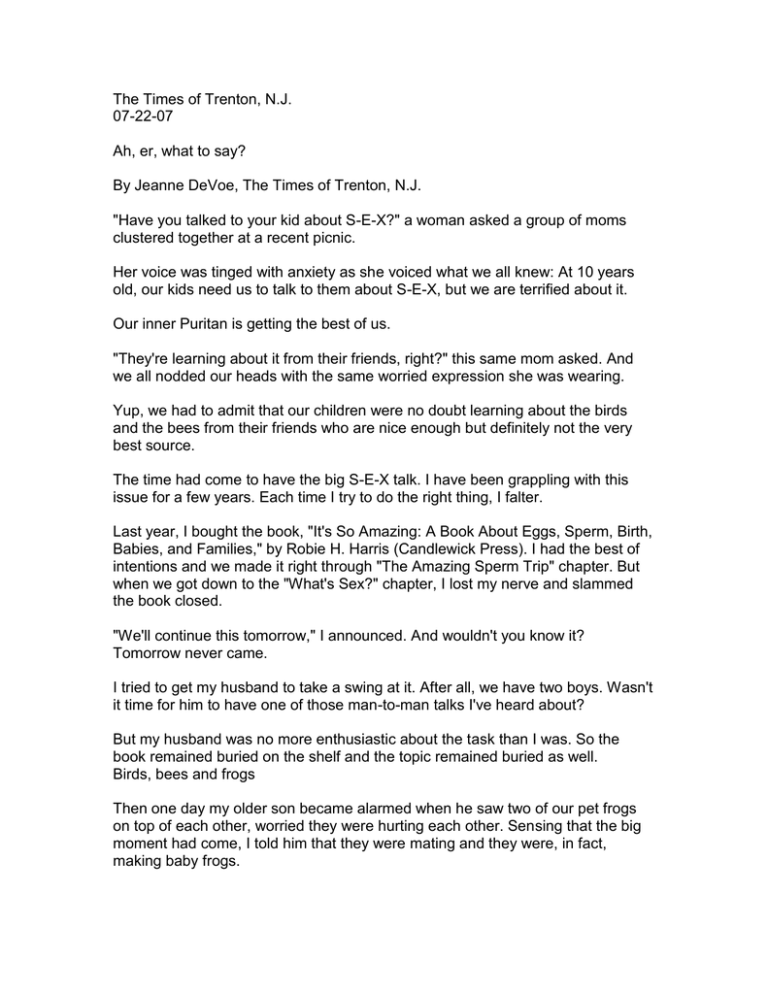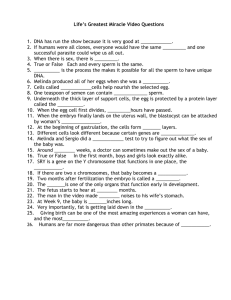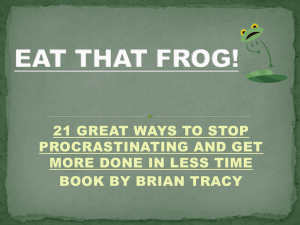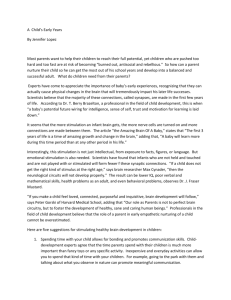
The Times of Trenton, N.J.
07-22-07
Ah, er, what to say?
By Jeanne DeVoe, The Times of Trenton, N.J.
"Have you talked to your kid about S-E-X?" a woman asked a group of moms
clustered together at a recent picnic.
Her voice was tinged with anxiety as she voiced what we all knew: At 10 years
old, our kids need us to talk to them about S-E-X, but we are terrified about it.
Our inner Puritan is getting the best of us.
"They're learning about it from their friends, right?" this same mom asked. And
we all nodded our heads with the same worried expression she was wearing.
Yup, we had to admit that our children were no doubt learning about the birds
and the bees from their friends who are nice enough but definitely not the very
best source.
The time had come to have the big S-E-X talk. I have been grappling with this
issue for a few years. Each time I try to do the right thing, I falter.
Last year, I bought the book, "It's So Amazing: A Book About Eggs, Sperm, Birth,
Babies, and Families," by Robie H. Harris (Candlewick Press). I had the best of
intentions and we made it right through "The Amazing Sperm Trip" chapter. But
when we got down to the "What's Sex?" chapter, I lost my nerve and slammed
the book closed.
"We'll continue this tomorrow," I announced. And wouldn't you know it?
Tomorrow never came.
I tried to get my husband to take a swing at it. After all, we have two boys. Wasn't
it time for him to have one of those man-to-man talks I've heard about?
But my husband was no more enthusiastic about the task than I was. So the
book remained buried on the shelf and the topic remained buried as well.
Birds, bees and frogs
Then one day my older son became alarmed when he saw two of our pet frogs
on top of each other, worried they were hurting each other. Sensing that the big
moment had come, I told him that they were mating and they were, in fact,
making baby frogs.
Then I spilled the beans with help from the very book I had put on the shelf a
year ago. I knew this was a crucial moment and I so much wanted to be the cool
mom but I did enough hemming and hawing to make it clear just how powerful
my inner Puritan is.
I managed to spit out the facts and I told him this is how all animals reproduce.
My son looked me and blinked his eyes and got back down to business, "What
about the frogs?"
"Them too," I choked out.
To this day, I'm not sure if my lesson even sunk in. Was my son uninterested or
freaked out? I still don't know the answer. But I'm relieved to find out the pressure
is off because the big sex talk is not really the way to go.
In fact, the big sex talk should be replaced by a series of discussions about sex,
says Elizabeth Casperian, director of educational programs at HiTOPS, an
adolescent health and education center in Princeton, N.J.
"I'm not a big fan of the concept of the big sex talk because I think it's important
for kids to learn at the developmental level that they're at," she explains. "They
can learn lots of interesting things when they're young and build on that level."
She recalls when her son put two and two together at age 6. "I know that you
need an egg and a sperm to put a baby together but how do they get together?"
he asked.
Casperian plunged forward and told him exactly how that egg and sperm get
together.
"He just looked at me and said, "No way," she remembers.
A gradual process
"We need to be talking about sex throughout the lives of our children and it's not
something we should wait for until adolescence," says Dr. Ronald WernerWilson, director of the Marriage and Family Therapy Program and Clinic at
Iowa State University in Ames, who has studied teen sexuality.
Parents can find all sorts of opportunities to talk to their children about sex, from
movies and television shows with sexual content to comments or conversations
about other children, he says.
One friend said she gave her three children some basic facts when a playmate of
theirs insisted that two men could make a baby together. She told them that two
men could adopt a baby but could not make a baby together and that led to a
whole discussion about gay men and lesbians.
She told her children that sex is great but you have to be an adult and married
and then she admitted - OK, you don't have to be married, but you do have to be
in love.
In their book, "How to Talk To Your Child About Sex," (St. Martin's Press) Linda
and Richard Eyre advise parents to tell their children "how amazing, how
beautiful, how marvelous it all is." They give parents a script that starts out talking
about love and babies and how they were born, and how sex is a "special, big
hug that mommies and daddies can have," and then fills in the details about what
that moment involves.
The Eyres also emphasize teaching children that sex is so special that it should
be saved for people who are committed and loyal to each other and married.
"The tone of it is so positive," Richard Eyre says. "You're saying this is the most
beautiful wonderful thing in the world; thus, the reason you would have for not
wanting to experiment or use it recreationally is because it's too special."
Eyre also emphasizes talking to your children about sex on an ongoing basis.
They believe parents should start having the big sex talk with a child at age 8 by
making it into a big occasion complete with dinner out at his favorite restaurant.
This makes my stomach turn over. I'm just getting used to the idea of talking to
my 10-year-old again. My little one just turned 8, and I'm picturing explaining the
facts of life to him at Burger King.
I'll ask, "Would you like to know how Mommy and Daddy made you with your
onion rings?"
Leave out the lectures
When kids do become teenagers, they want discussions, not lectures, warns
Werner-Wilson.
"They really want parents to talk about sex," he says. "They want candid
conversations. When you were a kid, how did you make decisions about sex?
How do you know it's the right one?"
So it's back to the drawing board for us. We'll be positive. We'll talk about love
and we'll return to the topic again and try to get better at it. I'm hoping we can
master the subject before that time not too far from now when I find myself in a
bunch of panicked moms who are no longer asking, "Have you told your kids
about S-E-X?" but "Do you think your kids are having S-E-X?"
By then, I'm hoping my inner Puritan has finally faced reality and has gotten out
of town.
For more information visit Linda and Richard Eyre's Web site at
www.valuesparenting.com







